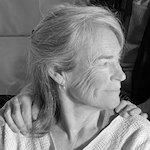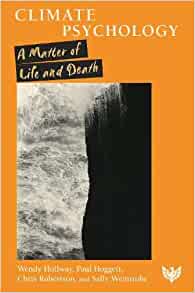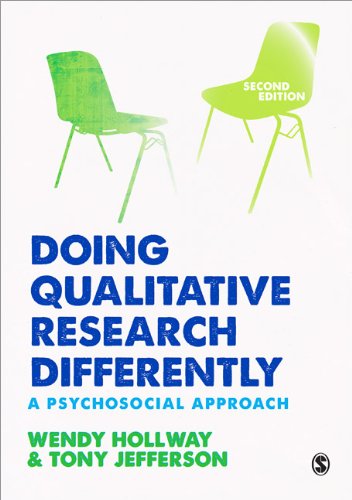Wendy Hollway

Wendy Hollway is Emeritus Professor of Psychology, Honorary Fellow of the British Psychological Society, and Fellow of the Academy of Social Sciences. She co-founded the UK psycho-social network, has been active in the European psycho-social network, and co-edits the Palgrave “Studies in the Psychosocial” series. She edits a monthly Digest for Climate Psychology Alliance.
Her books include: Changing the Subject: Psychology, Social Regulation and Subjectivity (1984/1998), with J. Henriques, C. Urwin, C. Venn, and V. Walkerdine. London: Routledge; Doing Qualitative Research Differently: Free Association, Narrative and the Interview Method (2000/2013), with Tony Jefferson. New York: Sage and Knowing Mothers: Researching Maternal Identity Change (2015). London: Palgrave Macmillan.
Climate Psychology: A Matter of Life and Death
Climate Psychology offers ways to work with the unthinkable and emotionally unendurable current predicament of humanity. The style and writing interweave passion and reflection, animation and... (more)
Mothering and ambivalence
This text brings together authors from therapeutic, academic and social work backgrounds to discuss dependency, anxiety and gender relations within families. Drawing on professional experience the... (more)
Work psychology and organizational behaviour: The management of the individual at work
Tracing the development of work psychology and organizational behaviour from the early 20th century to the present, this book focuses on the relations between knowledge, power and practice. The... (more)
Changing the subject: Psychology, social regulation and subjectivity
A critique of psychology that examines the foundations of critical and feminist psychology. It appeals to psychologists to re-think the central problems of social psychology, and argues that... (more)
The Capacity to Care: Gender and Moral Subjectivity
Wendy Hollway explores a subject that is largely absent from the topical literature on care. Humans are not born with a capacity to care, and this volume explores how this capacity is achieved... (more)
Doing Qualitative Research Differently: A Psychosocial Approach: Second Edition
Hollway and Jefferson have updated their ground-breaking book for students and researchers looking to do qualitative research differently. The new edition critically reviews many of the assumptions,... (more)
Knowing Mothers: Researching Maternal Identity Change
How do women experience the identity changes involved in becoming mothers for the first time? When this is the question of an empirical research project, it poses methodological challenges: how can... (more)








